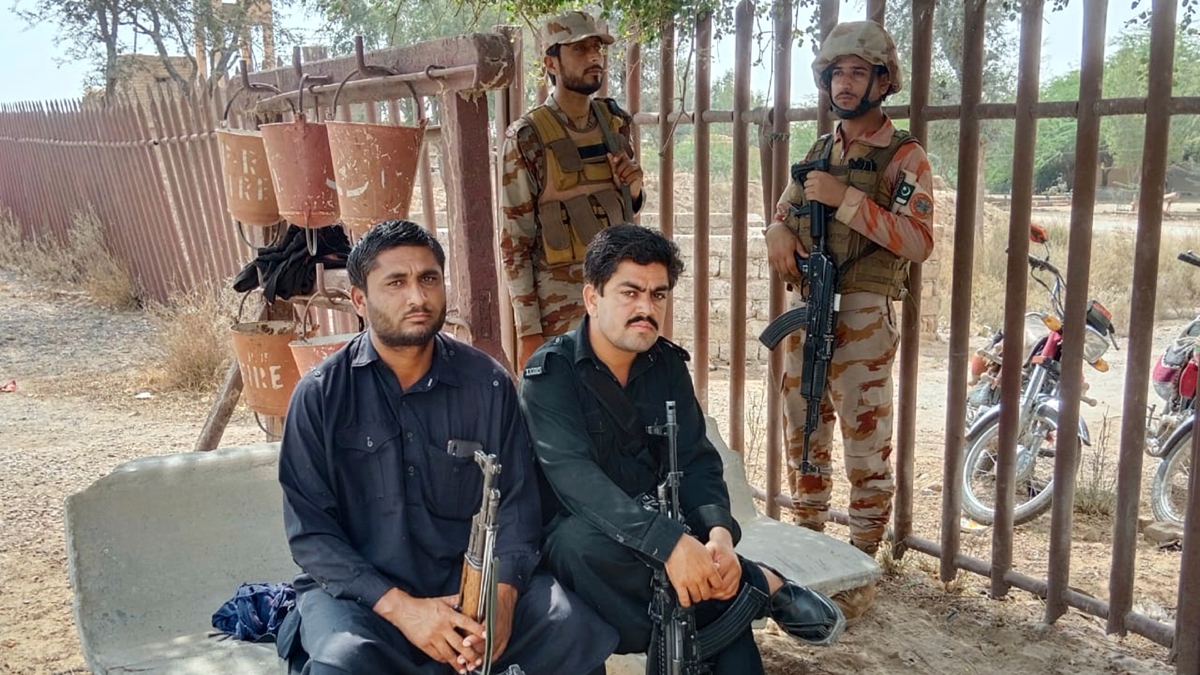'We sent them to hell': Pakistan bizarrely links India to infiltration bid by Taliban militants through Afghan border
 Pak paramilitary soldiers and police officers stand guard in Balochistan province | AP
Pak paramilitary soldiers and police officers stand guard in Balochistan province | AP
Pakistan has levelled another bizarre and baseless allegation against India, claiming the terrorists who were gunned down by its security forces while trying to infiltrate through the Pakistan-Afghanistan border in Khyber Pakhtunkhwa were acting on the behest of their "foreign masters".
Islamabad, while ratcheting up tensions with India, said in an Inter-Services Public Relations (ISPR) statement on Sunday that they killed 54 'Khwarij' - a term the state uses to refer to the banned Tehreek-e-Taliban-e-Pakistan (TTP) - who were sneaking into the country to carry out high-profile terrorist activities inside Pakistan.
Though the statement did not overtly take India's name, it read: "Intelligence reports indicate that this group of 'khawarij' was specifically infiltrating on behest of their foreign masters to undertake high-profile terrorist activities inside Pakistan."
"Such actions by the terrorists, at a time when India was levelling baseless accusations against Pakistan, clearly implies on whose cues FAK is operating," the statement said, adding that the security forces sent them to hell.
The statement, which came amid Islamabad's desperate bid to justify itself, said the country's National Security Council meeting that took place earlier this week to discuss a response to India downgrading diplomatic ties with Pakistan, had discussed India's role in enabling the TTP.
"The ISPR highlighted how distracting Pakistan’s security forces from their focus on the war against terror seems to be the strategic intent of India to allow a breathing space to FAK which is reeling from the onslaught of our Armed Forces resolute offensive against them," it said.
This isn't the first time that Pakistan has baselessly linked India to the TTP, an umbrella organisation of various Islamist armed militant groups operating along the Afghan–Pakistani border. It had earlier too claimed Indian involvement in the Jaffar Express attack. Soon after the terror attack on the train, Pakistan Foreign Office spokesperson Shafqat Ali Khan claimed that the rebels involved in the attack were in contact with ring leaders in Afghanistan. "India has been involved in terrorism in Pakistan. In the particular attack on Jaffar Express, the terrorists had been in contact with their handlers and ring leaders in Afghanistan," Shafqat Ali Khan said during his weekly press briefing.
However, days since the attacks happened, Pakistan hasn't been able to substantiate its claim with evidence.
Experts think the killings show the current issues faced by the strife-torn country. Abdul Basit, a senior research fellow at the S. Rajaratnam School of International Studies in Singapore, told The New York Times that the killings paradoxically underscores both a success and a challenge for the Pakistani military. He added that the country was increasingly sandwiched between its eastern and western borders. "India will keep the threat of potential military action alive and stretch it as far as it can to keep the Pakistan military overstretched," Basit added.
World